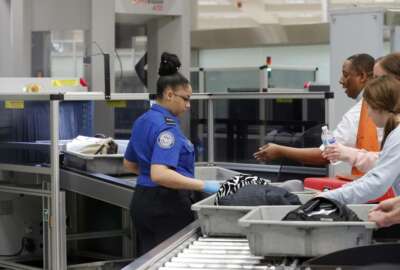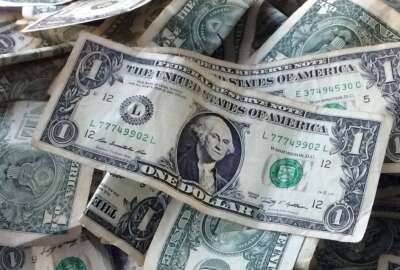We don’t pay them enough for this
Feds do lots of jobs for mediocre pay that most people wouldn't do for any amount of money.
How would you like, in the course of your daily work, to discover and have to deal with poop?
Literally.
It’s not just nurses and hospital orderlies.
Customer and Border Protection agricultural specialists discovered two cow dung cakes in luggage at Dulles International Airport in Virginia the other day. No icing on these brownies. From the picture in the press release, it’s hard to tell how large they are, but I’m guessing each cake is about the size of a hockey puck. Cow dung is relatively energy intensive, so such cakes are used in parts of South Asia as cooking fuel. A sort of Sterno without the can. Such cakes are nevertheless banned from importation to the United States because of their potential for bringing in foot-and-mouth disease — a contagious and serious threat to livestock the U.S. has been able to avoid for nearly a century.
A starting, GS-5 agricultural specialist earns about $33,000 per year, about $16.50 an hour.
As the federal workforce picks over the recently issued Federal Employee Viewpoint Survey results, it’s a good time to think about people with middling to low pay who do work not everyone would be willing to do.
Many federal employees encounter people and things many of us could not be paid enough to deal with. To be sure, this is also a private sector phenomenon. The FAA reports a tenfold increase in unruly passenger incidents aboard planes. It’s asking for a $10,500 fine against a passenger who was abusive to flight attendants over — you guessed it — instructions to wear a face mask. This was on JetBlue, which pays flight attendants between $21 and $24 an hour.
Maybe it’s airline travel that brings out the worst in people. I spoke to a Transportation Security Officer and president of AFGE Local 333, Joe Shuker. He noted that during the 2018-2019 government shutdown, flyers, knowing TSOs were working temporarily without pay, expressed sympathy. Some brought food and other gifts. Now, as air travel returns to the high pressure state of mobbed terminals and stuffed planes, people are back to their typical habits of taking out their frustrations on TSOs.
Plus, COVID masks or not, TSOs have to come close to people, patting some of them down. This in addition to dealing with the cranky, sneaky or self-important dingbats who saddle through checkpoints.
New TSOs also earn around $16.50 to $17 an hour, about $39,000 per year.
A pattern exists in government, no less than in the private sector. Namely, we tend to put those at the lower end of the pay and job security scale right on the front lines. They must execute everything from dirty jobs like looking in luggage, to delivering on customer experience expectations.
To be fair, I note that cow dung pucks don’t show up every day in luggage from overseas. Sometimes it’s merely gooey giant snails the size of a softball.
Jobs can be emotionally difficult no less than physically. Look at the footage streaming out of the border with Mexico. Border Patrol agents pulling children out of the river, or taking them in after someone — Lord knows who — left them behind. Starting Border Patrol agents earn less than $50,000 and a maximum of around $78,000. Decent for some parts of the country, but not a ton given the danger and the sometimes crazy responsibilities.
As for the TSA, Congress is debating whether to move officers into the General Schedule system and at higher minimum pay levels. Being GS employees would give them a wider range of job elements to bargain over and, the TSOs hope, protection from arbitrary dismissal and what they feel is a lack of due process.
Federal pay levels swirl around in eternal debate as old as the republic. In the hard world of economics, a job draws what the marketplace judges it to be worth. As this link provided by the AFL-CIO points out , the CEO of General Electric — a struggling company — got a $47 million bonus last year. We pay a Border Patrol agent who rescues an 11-month-old baby $50,000 to $60,000. I’m not judging either way, because there is no right answer.
By the same token, we don’t pay people like Anthony Fauci, who earns more than the president at north of $400,000, to personally give vaccination shots.
Federal salaries, outside of specific instances such as Title 38, mostly occupy a relatively narrow band, with private sector pay levels both below and way, way, above them.
Federal managers don’t have the authority to give nice bonuses or big raises to the cow dung pie handlers or those plucking innocent children out of a river. Employees know this. And it’s strange how much real responsibility falls to people who don’t earn at the high levels. For the most part, they nevertheless take pride in their work and do it diligently. Therefore managers can at least make sure to treat these employees with dignity, appreciate the work they do, and have their backs.
Nearly Useless Factoid
In 1967, more than 100,000 anti-war activists marched on the Pentagon, resulting in the iconic image of a protester placing flowers in rifle barrels. During that protest, a core group of organizers attempted a series of rituals and exorcisms intended to levitate the building 300 feet in the air.
Source: Smithsonian Magazine
Copyright © 2025 Federal News Network. All rights reserved. This website is not intended for users located within the European Economic Area.
Tom Temin is host of the Federal Drive and has been providing insight on federal technology and management issues for more than 30 years.
Follow @tteminWFED





